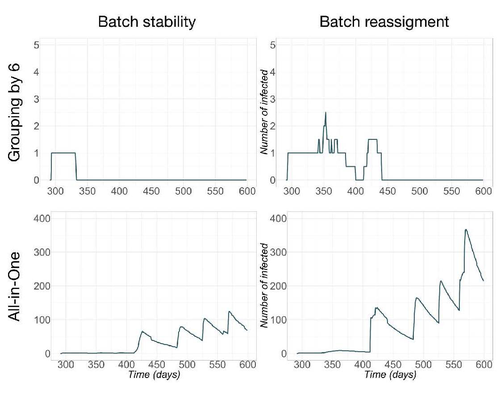
LETOURNEAU MONTMINY Marie-Pierre
- Animal Science, Laval University, Québec, Canada
- Agricultural sustainability, Animal nutrition modelling, Mathematical modelling, Monogastrics, Physiology, Pig nutrition, Poultry
- recommender
Recommendation: 1
Reviews: 0
Recommendation: 1

Pig herd management and infection transmission dynamics: a challenge for modellers.
Towards models of infection transmission dynamics
Recommended by Marie-Pierre Letourneau Montminy based on reviews by Gustavo Machado and 1 anonymous reviewerEpidemics such as PRRSv-like virus in pig farms has tremendous impact on the competitiveness of swine production. However, its control requires an understanding of the complex interaction between pathogen transmission, disease impact, population dynamics and management. By using mechanistic epidemiological modelling, Sicard et al. (2023) open up a very interesting field of possibilities. This article describes work aimed at assessing the consequences of infections, taking into account the interaction between clinical outcomes and population dynamics. This study shows how this interaction can influence transmission dynamics at the herd level. It highlights the need to further explore this direction, integrating both disease impacts in breeding practices and structural changes in population dynamics, such as pig crossbreeding and grouping methodologies.
The provision of a new tool making it possible to model herd management practices and the transmission of a virus, such as PRRS, in time and space is a major contribution to understanding the dynamics of this category of diseases. It opens up the possibility of being able to represent specific herd structures and evaluate transmission dynamics using real data. This work improves our understanding of disease spread across herds, taking into account herd management.
Reference
Sicard V, Picault S, Andraud M (2023) Pig herd management and infection transmission dynamics: a challenge for modellers. bioRxiv, 2023.05.17.541128. ver. 2 peer-reviewed and recommended by Peer Community in Animal Science. https://doi.org/10.1101/2023.05.17.541128